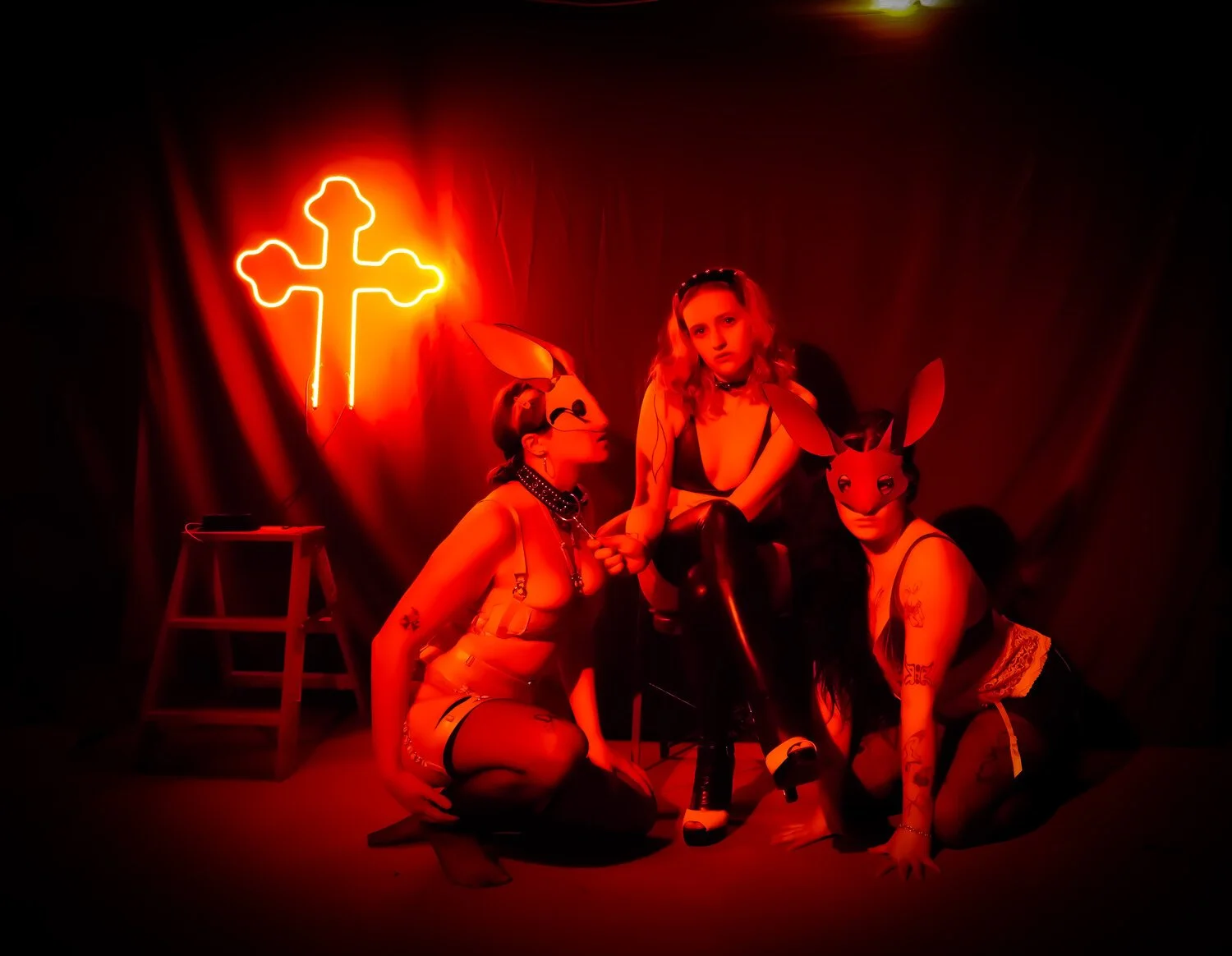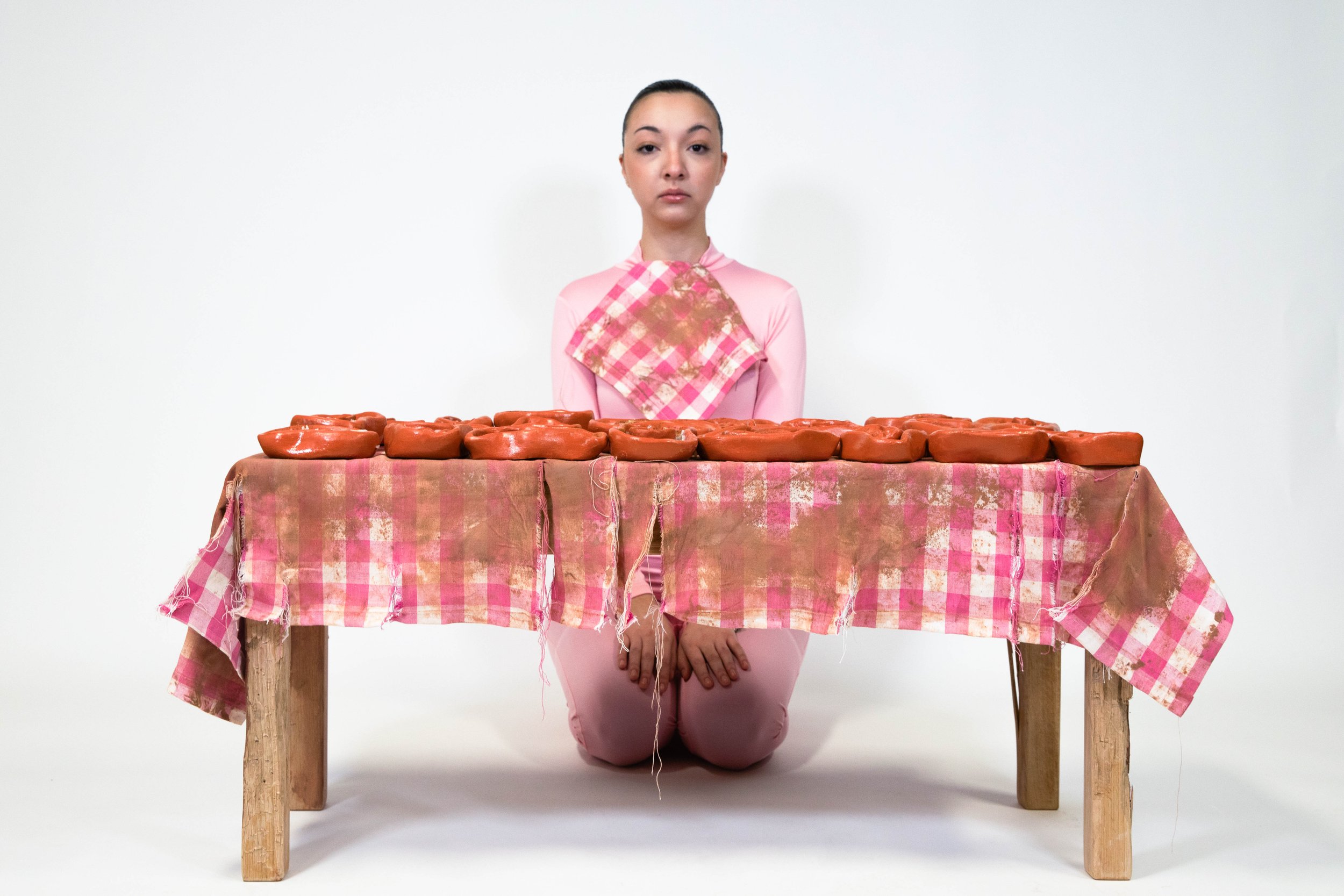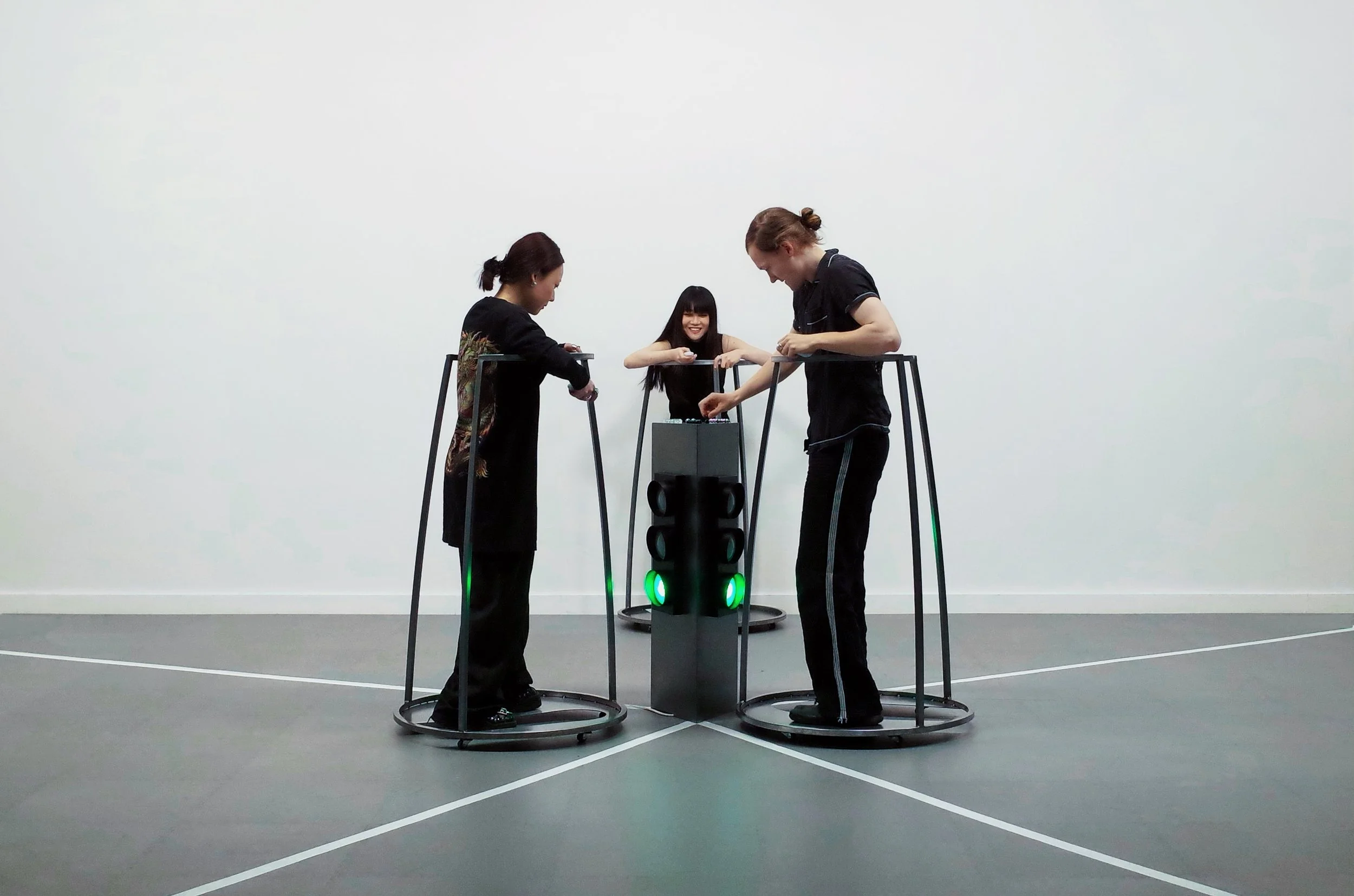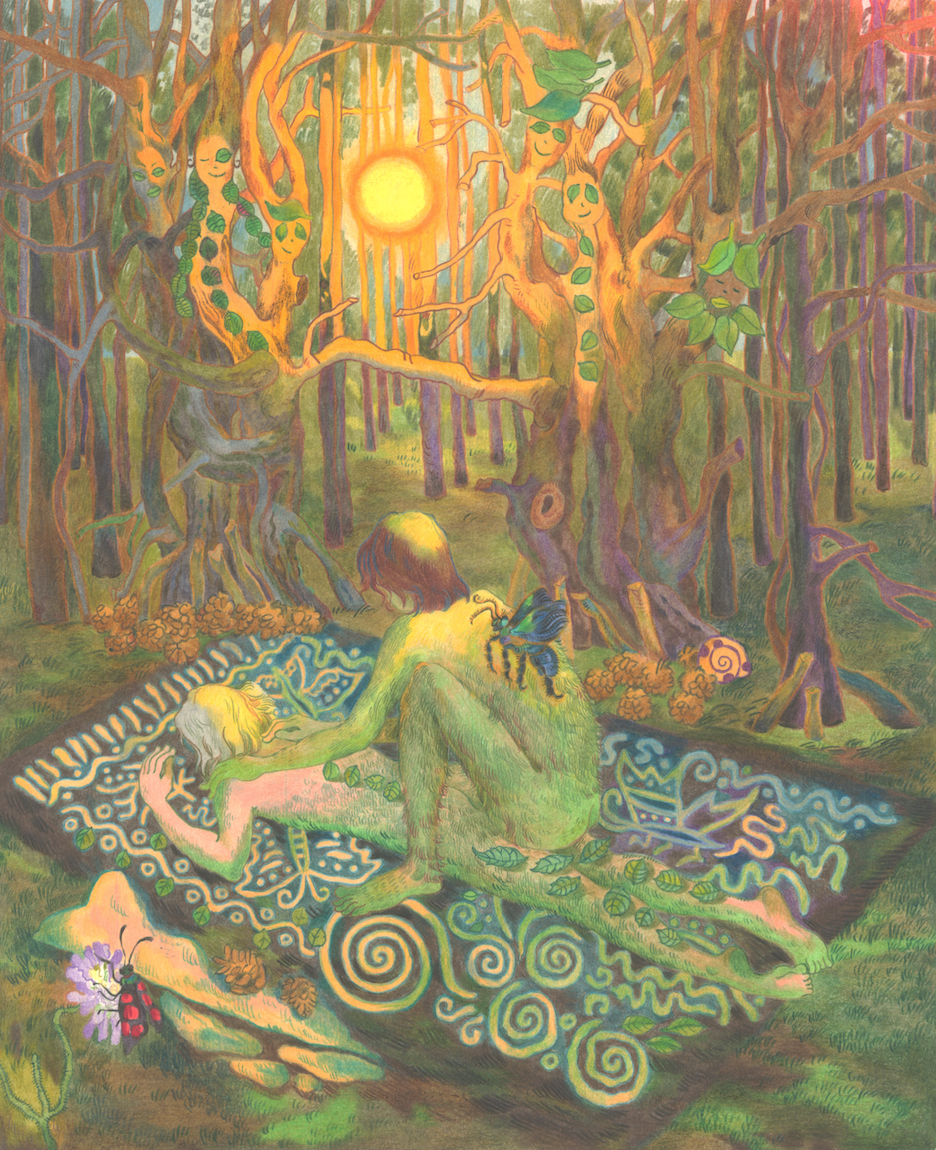10 Questions with Natalie Lambert
Natalie Lambert (b. 1995) is an interdisciplinary artist as well as the Curator and Founder of Toula Gallery. Originally from Pittsburgh, Lambert received a BFA in Fine Arts from NYSSC at Alfred University in 2018. Natalie is currently an MFA Candidate at the University of Wisconsin Madison 2023.
Raised in a non-traditional home with two mothers, Natalie approaches her work from feminist theory. She challenges the viewer with her use of titles, materials, and imagery. Her work is exploratory to herself and the environment she is in or has experienced. Through language and eroticism, Lambert provokes thoughts of objectification and challenges the stereotypes about gender politics, sex, and the body.
Natalie has been exhibited in a number of shows, espace_furtur; Paris, France, Revisiting the Symbol; Memphis, Show #3; Trophy Case Gallery, Local Alumni Invitation, Cohen Gallery; New York, Rochester Erotic Festival; Rochester NY and In Care of the White House, Washington D.C., and several other shows.
Natalie Lambert Portrait
ARTIST STATEMENT
Natalie Lambert's practice is a multitude of materials and research. She is versed in glass, sculpture, video, performance, and installation design. Lambert's work explores the uncomfortable and sexual fantasies she finds interesting. Natalie is trying to navigate the power dynamics between sexual and non-sexual beings within the fetish world and her own life. To learn to control the environment, the material, and the people she is walking between, the art world and the fetish world, help navigate where she can bring those together. Lambert collaborates with others in the fetish world to give the work more context. Her work touches on the pushback of why it makes people uncomfortable being sexual and why it is deemed immoral or inappropriate. Natalie allows herself to become more powerful by making this work and reclaiming what she gave up for so long: to be open and confident in what she wants out of art and life.
INTERVIEW
Why are you an artist, and how did you become one?
I knew I was going to become an artist in high school. I had amazing teachers who encouraged me to create. Making things and learning the history of art was a way to escape from regular classes. Art made sense to me and how I could think through ideas. It also helped me understand how to communicate with an audience in a visual way.
You work with a range of different mediums and techniques. How would you define yourself as an artist?
I would call myself an interdisciplinary artist. I never wanted to be in one medium. I am constantly exploring materials that can better translate my concepts.
My Bunnies, Photography, Leather, Latex, Neon, Wood, Metal © Natalie Lambert
Eroticism is a big part of your art, and so is the fetish world. What messages are you trying to communicate with your art?
My work is a self-exploration of who I am. I am trying to educate the public about what it means to have sexual agency over your own body and understand that this is uncomfortable and sit with that and learn to talk about it.
Feminism is another key theme of your work. How do you approach this theme? And what do you think differentiates your approach from others?
My earlier work was heavily influenced by feminist theory from writings, looking at artists, and understanding where I sat within the feminist movement. I think my work differentiates from the classic feminist approach, that my work is just made to be sexualized. But I ask, why can't I let the audience sexualize me? I am still conscious of what I have researched for the last eight years, but I think I have a better understanding of what I want to talk about rather than reiterating the same concepts of feminist theory.
What do you think is the role of art in addressing such relevant themes? Can art erase the viewers' reading of such themes and make them more familiar and open to interpretations?
I'd like to think that my work answers and asks questions at the same time. I think art lends itself to being both enjoyable yet didactic, and my work fits within the scope of both.
Eating Temptation, Digital Print, 2018 © Natalie Lambert
How has your art evolved over the years? And what inspired you to experiment?
I used to be strictly into just digital art because what I understood the most was computers. It wasn't until my second year of Undergrad that forced me to take a Glass Blowing class, and that's when I caught the bug for experimenting with different material. My main professor was always telling us to do material exploration to help with our concepts. I think at the time I was stubborn to take that advice, but it helped me out in the end.
Do you have a role model that you've drawn inspiration from when creating your art? And what are, in general, your sources of inspiration?
I used to be really influenced by Nam June Paik, I used a lot of CRTV in my past work. Now I think I have been looking at more contemporary artists, but a lot of my influence has stretched into fetish photographers. Even listening to many newer female artists has been an inspiration, like Brooke Candy, Ashniko, Doja Cat, BIA, etc. All are taking back their sexual agency and changing the way we look at female musicians.
What do you think of digital exhibitions and presentations? Are you experimenting with these, or are you into more traditional ways of presenting your work, like physical exhibitions in galleries and museums?
Honestly, I love the Digital exhibitions and presentations. Since we heavily rely on the internet, why haven't we had more before the pandemic? I have been a few this past year and have loved every minute of it. I have a lot of work that could potentially break if it is sent out, and being able to present them online has helped with that anxiety. Would I like to have more physical exhibitions, but I wouldn't say it's a priority to make work for the next show.
We all had a lot of free time over the past year, and some of us dedicated it to discovering new artists. Did you find any positive change in people's approach to your art now, compared to last year?
I have seen some differences in how people approach my art. I am having more conversations as to why I am making this work or working with certain phrases such as being called "Daddy". It's definitely been an exciting experience to have engagement and people wanting to understand where I am coming from.
And lastly, what are your plans for the future?
I want to pursue a Ph.D. program in Art practice for the future and run my gallery full time in a real space.























